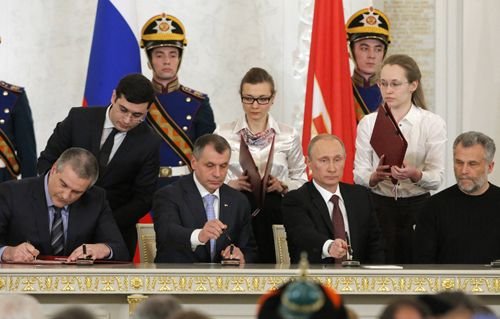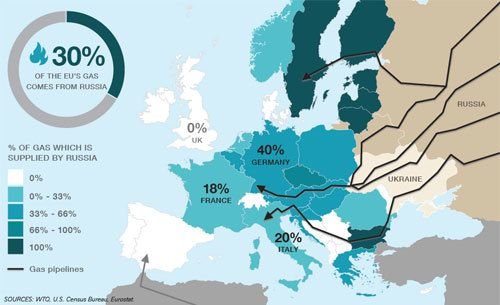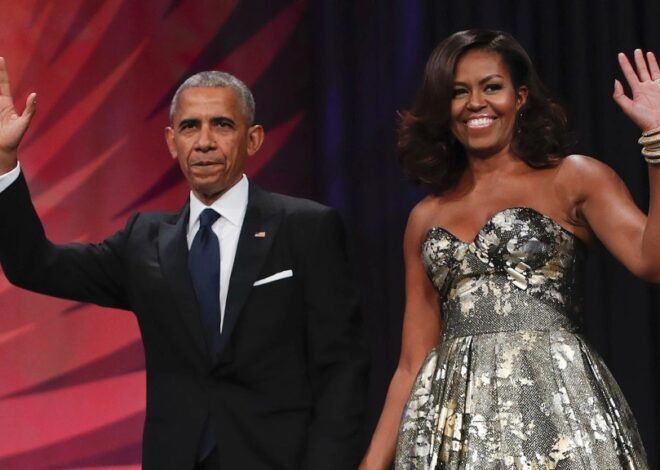
Crimea tests the resolve between Russia and the West
Front row, from left to right: Prime Minister of Crimea Sergei Aksyonov, Chairman of the Crimean Parliament Vladimir Konstantinov, Russian President Vladimir Putin and Mayor of Sevastopol Alexei Chaliy during the signing ceremony of the treaty annexing Crimea to Russia in Moscow on March 18.
The focus of the recent Nuclear Security Conference in The Hague revolved around the Ukraine crisis, specifically the annexation of Crimea into Russia.
The conference ended with the European Union (EU) agreeing to expand the scope of sanctions against Russia;
Many experts believe that the Crimea crisis makes the post-Cold War international power structure clearer than ever, and may even change the world political landscape.
After the Cold War, conflicts between great powers often took place through confrontations between countries considered satellites.
Russia agreed to pay the price to have Crimea
In 2010, President Vladimir Putin declared that the dissolution of the Soviet Union was `a political disaster`.
Strategically, many analysts believe that, with the takeover of Crimea, Russia may end the type of relationship between cooperation and struggle between this country and the US over the past 25 years, in which Moscow has always been in a vulnerable position.
Geopolitically, Russia can exert pressure to restrain the pro-Western Ukrainian government in Kiev through Crimea.
For Mr. Putin personally, the annexation of Crimea was a huge political victory, with a record high in domestic support.
After the Crimea incident, Washington and the EU are confused in assessing and predicting the next steps of the Kremlin boss.
`The current situation is no different from the Cuban nuclear threat in 1962, to which weaker people had to submit. Putin is unlikely to act like Nikita Khrushchev,` Professor Ton said.
However, Russia still faces challenges after the above action.
According to the assessment of former Finance Minister Alexei Kudrin, in the first quarter of this year alone, more than 70 billion USD withdrew from the Russian market.
In the first three weeks of the month, the Russian Central Bank spent 25 billion of more than 400 billion USD in foreign exchange reserves to prevent the ruble from depreciating against the USD and euro.
Moscow’s tough actions could push Kiev closer and closer to the EU’s orbit, as well as increase the concerns of former Eastern European bloc member countries.
The US and EU weigh the pros and cons

About 30% of Europe’s gas supply comes from Russia.
According to Professor Ian Bremmer of New York University, the US puts itself in a position of `talking more than doing`, because the Obama administration’s statements about punishing Russia are beyond its ability to implement.
The US has underestimated the importance of Ukraine and Crimea to Russia.
`Western leaders need to clearly understand that Ukraine is a multi-national country with a special position, located between Russia and eastern Europe,` said Financial Times commentator Gideon Rachman.
In addition, the US and the EU do not completely agree on the issue of sanctions against Russia, because the energy and trade links between the bloc and Moscow are too tight, making any punitive action harmful to their interests.
Like Ukraine, Europe is also heavily dependent on Russian gas supplies.
The EU has been implementing plans to diversify gas supplies and develop alternative energy sources, but the above dependence is still very large.
Although the EU’s level of political unification is very high, the 28 member states all have their own interests and strategic calculations, making unification through a sanction very difficult.
Republican leaders in the House of Representatives and leading US oil and gas businesses simultaneously urged President Obama to speed up the gas export process, to minimize the EU’s dependence on Russia, thereby restraining its actions.
But in reality, this strategy cannot have an immediate effect on the current Crimea crisis, because ports serving gas export need at least another year to be built.
`The Obama administration should focus on supporting Ukraine, not punishing Russia. This means taking advantage of America’s influence with Europe to ensure all parties maintain long-term support on the ground.`
Duc Duong


